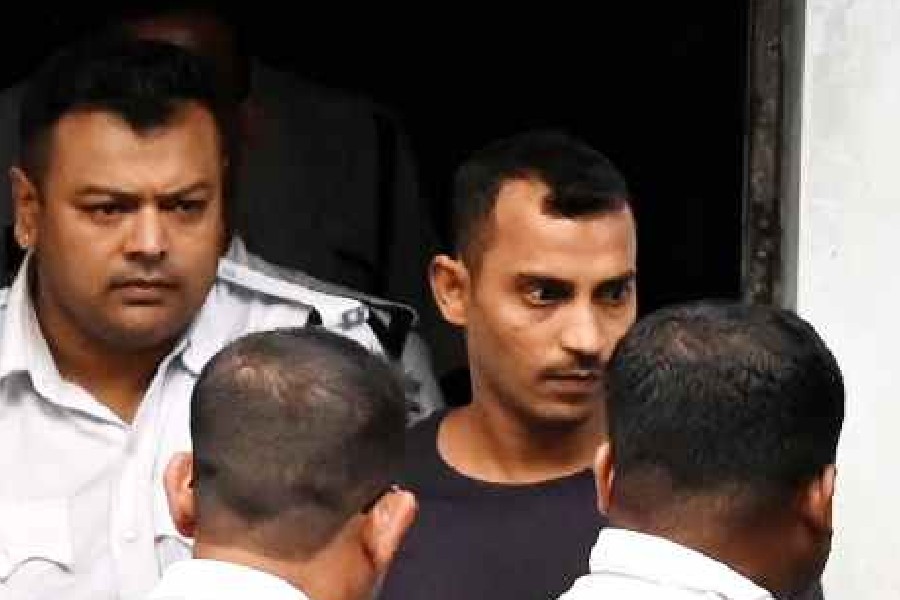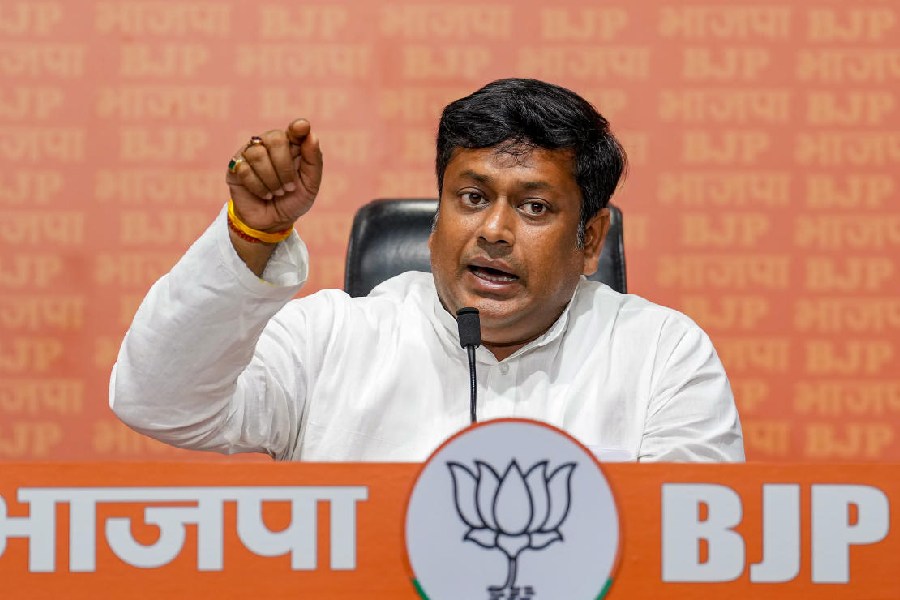New Delhi, July 20: India is eyeing a brief sentence uttered by a Chinese foreign ministry spokesperson today as the first hint of a realistic diplomatic window for the two countries to resolve their 34-day border standoff, ahead of a visit by national security adviser Ajit Doval to Beijing.
"Diplomatic channels between China and India have been smooth," Chinese foreign ministry spokesperson Lu Kang said when asked in Beijing about India's insistence on diplomacy as a recipe to resolve the spat. "But as we have repeatedly said, Indian troops need to go back across the border line for there to be meaningful dialogue," he added.
The Chinese foreign office has for a month now been demanded that Indian troops pull back from the site of the dispute for any talks.
Three Indian officials independently pointed to that reference by China to functioning diplomatic channels, almost as though in hope, in response to questions from The Telegraph, a week before Doval flies to Beijing.
But two of the officials also indicated that China, as the host, had not yet sought a bilateral meeting between Doval and his Chinese counterpart, Yang Jiechi, when the Indian NSA visits next week for Brazil-Russia-India-China-South Africa (BRICS) talks.
The foreign office's hope for a diplomatic conversation between Doval and Yang springs from a keenness to avoid an escalation in tensions coupled with recognition that India now can't pull back its troops without strategic and domestic political embarrassment for the government.
The face-off on a plateau in territory disputed between China and Bhutan, near the Sikkim border, is already the longest between soldiers of the two Asian giants in three decades.
"What has been said today is that diplomatic communications have not been actually broken," foreign ministry spokesperson Gopal Baglay said, when asked about China iterating its precondition that Indian troops withdraw for any "meaningful" talks to resolve their spat.
Pressed further by reporters, Baglay turned to Chinese-style obtuse messaging, quoting a couplet by 15th century poet and saint Kabir.
" Sadhu aisa chahiye, jaisa soup subhaye, saar saar ko gahi rakhe, thotha dher udai (A saint is one who, like a sieve, can separate what is useful from what is irrelevant)," Baglay said, reciting the couplet and suggesting that he wanted to focus on China's reference to diplomatic channels.
The tiniest glimmer of hope spotted by India's foreign office this evening followed a morning when foreign minister Sushma Swaraj had to field questions in Parliament on the standoff.
Sushma told MPs that India was communicating with its international friends and that "everyone understands our position". This newspaper had reported the diplomatic outreach undertaken by both India and China on Wednesday.
The foreign minister also outlined a series of ports and facilities China has built in recent years at strategic points in the Indian Ocean - in Myanmar, Sri Lanka and Pakistan - and a base it took over in Djibouti recently. But she said it was "wrong to suggest that India is encircled".
For India, the search for a diplomatic resolution to the spat has also been accentuated by growing signals from Bhutan that it prefers an end to the spat - even if it may mean a compromise with the much larger China.
India had deliberately waited for Bhutan to issue a statement on the current standoff before speaking officially about it. India's foreign office, in its statement on June 30, suggested that its troops had entered what Bhutan considers its territory, at least in part to defend Thimpu's interests under a 2007 agreement that binds the two countries to protecting each other's security.
But Bhutan, in its only public statement - on June 29 - did not mention India. Neither New Delhi nor Thimpu has clarified whether Indian troops crossed the border after a request from Bhutan - or based principally on Indian security concerns. India's June 30 statement only refers to cooperation and consultation between India and Bhutan on the spat.
Baglay, asked whether Indian troops acted on a Bhutanese request, switched from Kabir to cricket to answer just as obliquely.
"Whether the ball hit the bat first or the batsman took a forward stance to meet the ball is not something I think is appropriate for me to answer," he said.










